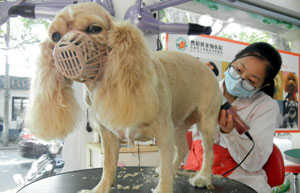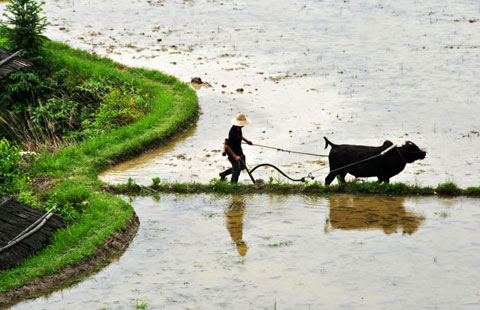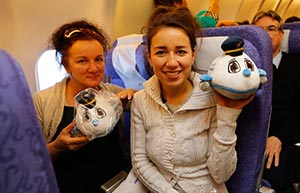US hopes for meaty profits if exports to China resume
By Michael Barris in New York (China Daily) Updated: 2014-05-07 07:13Sixty-five nations implemented full or partial restrictions on US beef imports because of concerns that US testing lacked sufficient rigor. US beef exports dropped to 322,000 metric tons in 2004 from 1.3 million metric tons in 2003, before the first mad cow was detected in the country. Last year, beef exports stood at 1.1 million metric tons, according to the US Meat Export Federation.
Beijing, which halted US beef imports after the US Department of Agriculture confirmed the first US mad cow case, has promised in recent years to ease the ban. If the restrictions are relaxed, the US industry would target China's chain restaurants, fine-dining hotels and retail stores, where demand for high-quality beef is highest, Degner said. The exports also would target the market for the organ meat that is eaten in China.
 |
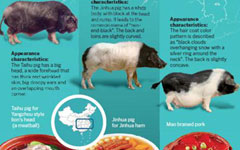 |
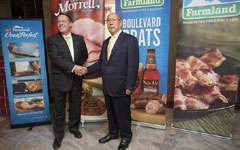 |
"We toured a huge, brandnew cold storage facility in Nanjing and one being built in Suzhou," Black said, according to a release on the Iowa Beef Industry Council's website. "Each will allow for a thousand or more wholesale 'meat shops' to be indoors, with electricity and near the freezer storage building."
The online market holds "great potential" as a way to sell US beef to China, Black was quoted as saying. China's financial capital, Shanghai, boasts one of the world's fastest-growing ecommerce markets with "young people ordering food online for delivery to their homes and offices due to the dense population in highrise housing", Black said. In just one week, an online pork promotion by the US Meat Export Federation generated sales of approximately 10,000 metric tons of pork, he said in the release.
Late last year, China promised to ease restrictions on imports of US beef following the annual USChina Joint Commission on Commerce and Trade meeting in Beijing.
Chinese Deputy Commerce Minister Wang Chao told reporters at the time that the two sides had agreed to "promote US beef exports to China" but gave no details. A deputy agriculture ministry, Niu Dun, said the sides would work on technical issues but gave no timetable for when full-scale imports might be allowed.
Borror said US beef production is expected to decline by about 5 percent this year and remain flat for the next few years. A lack of pasture grass in drought-plagued states such as Oklahoma, Texas and Colorado has reduced herd numbers and limited US beef export volume growth, the economist wrote.
"But our international customers continue to pay higher prices for US beef, a sign of its value and growing international demand," she wrote. Fischer said that despite the anticipated drop in US beef supply due to the drought and rebuilding of the cattle herd, "numbers in Iowa are stable".
- Dividends to increase at central State firms
- China's dairies facing fierce competition
- E-commerce brings new business to China Commodities City
- Wholesale city riding wave of e-commerce
- Worries reasonable, housing price tumble unlikely
- Shangri-La Hotel enters British market
- Facebook gains by aiding nation's exporters
- Softening real estate market undercuts GDP growth picture

